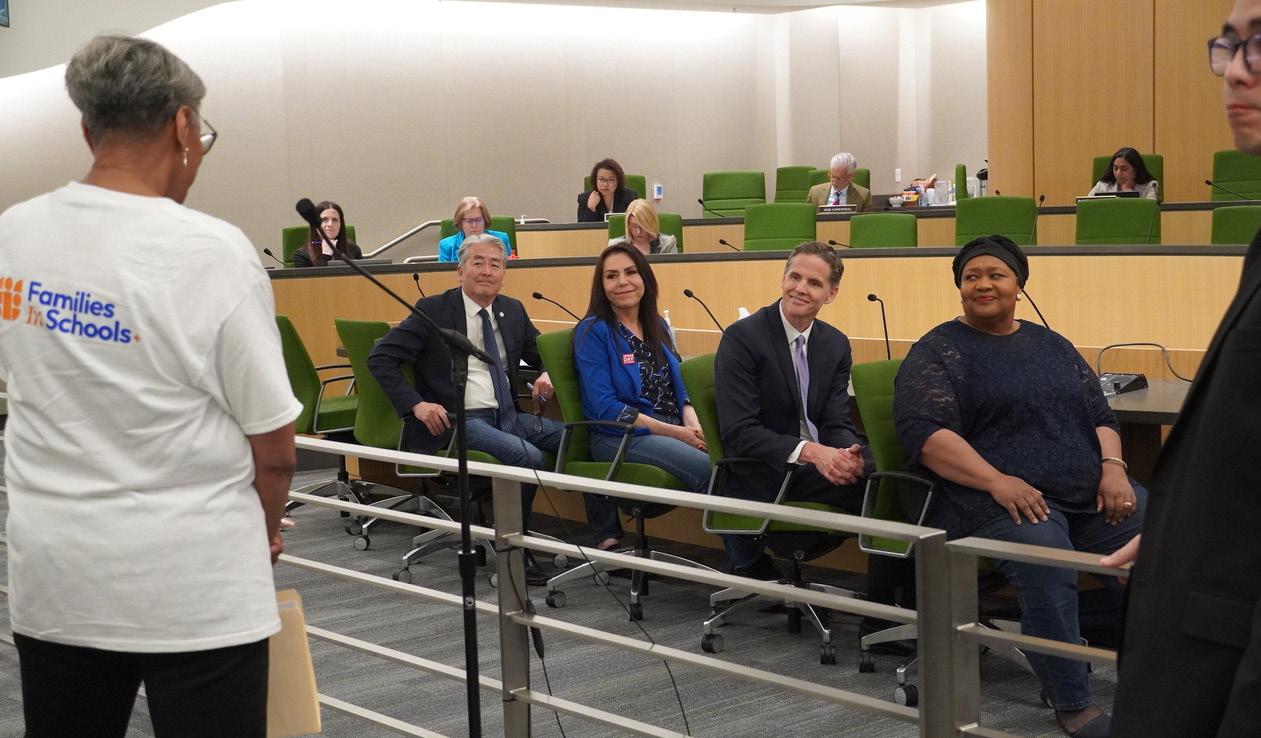










By Magaly Muñoz
The City of Oakland’s Housing and Community Development Department hosted a town hall in Fruitvale to discuss the efforts being undertaken to remove lead primarily found in housing in East and West Oakland. In 2021, the city was awarded $14 million out of a $24 million legal settlement from a lawsuit against paint distributors for selling lead-based paint that has affected hundreds of families in Oakland and Alameda County. The funding is intended to be used for lead poisoning reduction and prevention services in paint only, not water or other sources as has been found recently in schools across the city.


The settlement can be used for developing or enhancing programs that abate lead-based paint, providing services to individuals, particularly exposed children, educating the public about hazards caused by lead paint, and covering attorney’s fees incurred in pursuing litigation.
According to the city, there are 22,000 households in need of services for lead issues, most in predominantly low-income or Black and Latino neighborhoods, but only 550 to 600 homes are addressed every year. The city is hoping to use part of the multimillion-dollar settlement to increase the number of households served each year.
Most of the homes affected
By Ken Epstein
After 20 years under state control, the Oakland Unified School District (OUSD) will regain local authority over its budget and dayto-day decision-making, emerging from an era of austerity when the district was forced by state-appointed overseers to close more than 40 mostly flatland schools, eliminate educational programs, and cut millions of dollars in services for students and classrooms.
After making its final payment on a $100 million state loan at the end of June, the district in July will again be under the authority of the
The decades of direct intervention by state officials, Alameda County education officials and a powerful, state-funded regulatory agency, the Fiscal Crisis Management and Assistance Team (FCMAT), will finally come to an end in July, according to the office of State Superintendent of Schools Tony Thurmond.
The official narrative of the state takeover is a simple one: the district overspent its budget, and the state altruistically stepped in to
Since the African American Sports and Entertainment Group purchased the City of Oakland’s share of the Alameda County Coliseum Complex, we have been documenting the positive outcomes that are starting to occur here in Oakland.
Some of the articles in the past have touched on actor Blair Underwood’s mission to breathe new energy into the social fabric of Oakland. He has joined the past efforts of Steph and Ayesha Curry, Mistah Fab, Green Day, Too Short and the Oakland Ballers.
This week a number of socially enterprising members of this group visited Oakland to explore ways to collaborate with local
land, Private
Oakland; Mayor-elect
Lee, the Oakland Ballers ownership group and the oversight thought leaders in the Alameda County Probation Department. These visits represent a healthy exchange of ideas and plans to resuscitate Oakland’s image. All parties felt that the potential to impact Oakland is right in front of us. Most recently, on the back side of these visits, the Oakland Ballers and Blair Underwood committed to a 10-year lease agreement to support community programs and a community build-out. So upward and onward with the movement of New Oakland.

Special to The Post
The East Bay Community Foundation (EBCF) announced the first round of grantees for the Oakland Small Business Resiliency Fund, its initiative supporting small businesses in Oakland’s most underserved neighborhoods.
The Fund is dedicated to helping businesses overcome the challenges of accessing capital, particularly those in communities that have been historically impacted by disinvestment and community violence.
This year’s grantees represent neighborhoods like Downtown Oakland, East Oakland, Eastlake, Fruitvale, and West Oakland. Many of the grantee partners have been long-standing pillars in their communities, underscoring their resilience and ongoing impact.
96% of grantees identify as Black, Indigenous, or People of Color; almost half identify as Black, African American, or African.
• Over half of business owners identify as women, transgender, or non-binary/gender variant/ non-conforming.
• Over half of grantees have been
operating in Oakland for 10 or more years, with 20% serving the community for more than 20 years.
Among the more than 140 grantees are (randomly selected): Elevate Golf Academy, Healthy Potter, International Coin Laundromat, Kinfolx, Mothers Touch, Flylady Tee, High Street Hand Car Wash, Geoffrey’s Inner Circle, Hasta Muerte Coffee Cooperative, RBA Creative, This Is Baba’s House, Soulflow Enterprises, Sirius Creativity, Xin Da Di Salon and Marcus Books.
These businesses are innovative and essential to the cultural and economic fabric of Oakland, EBCF said in their announcement. “We encourage you to learn more about their efforts and support their continued work in creating impactful change for their communities,” the statement says.
As part of EBCF’s commitment to shifting power in funding decision-making structures and sharing power with community, it co-created and collaboratively implemented the Oakland Small Business Resiliency Fund with a diverse ecosystem of partners who are committed to
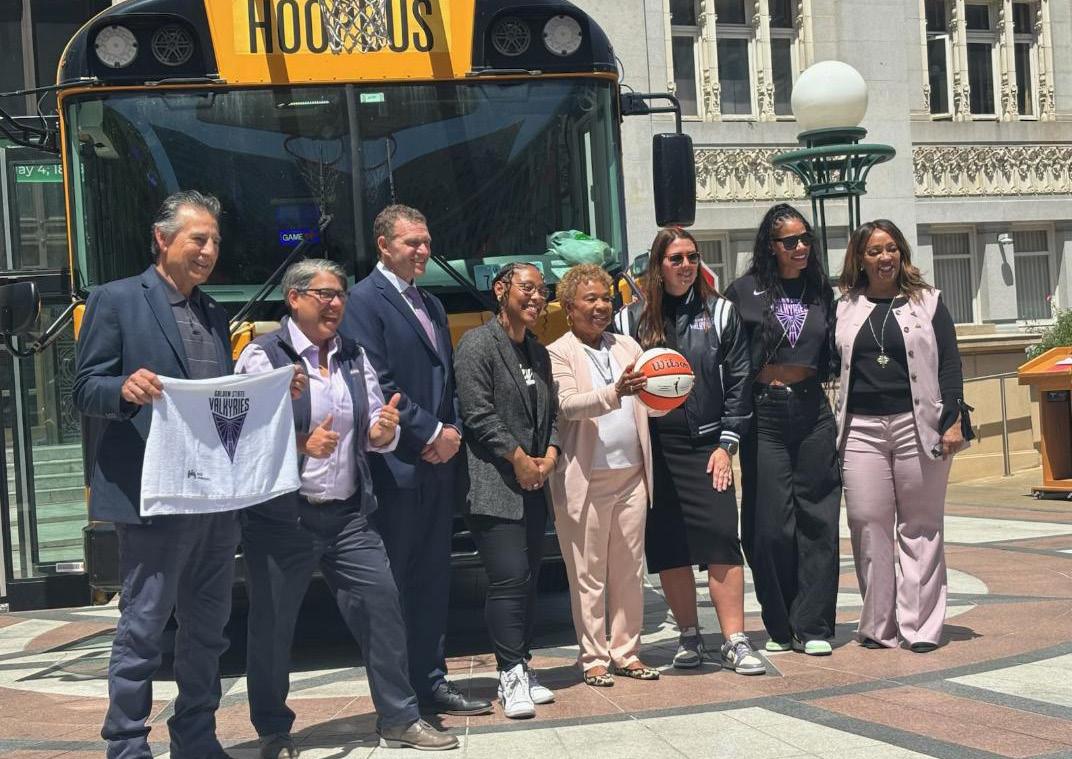

The Golden State Valkyries brought the excitement of their inaugural season to every corner of the Bay Area with a full slate of community celebrations leading up to their historic home-opener against the Los Angeles Sparks at the Chase Center in San Francisco on Friday.
The week featured flag-raising ceremonies at city halls in Oakland and San Francisco, three “Violet Net” installation days at Oakland parks to encourage basketball play, fun “Hoopbus” takeovers at multiple schools presented by Kaiser Permanente, and player appearances.
“The Golden State Valkyries
are more than a team—they’re a movement,” said Oakland Interim-Mayor Kevin Jenkins. “Their touchdown in Oakland marks a new era of opportunity, inspiration, and equity in sports. This partnership reflects our city’s deep commitment to uplifting women, investing in youth, and building a community where every dream has a place to grow. We’re proud to welcome the Valkyries to The Town.”
In total, 90 violet nets were installed on 45 basketball courts across 34 public parks throughout Oakland this week. A list of the parks receiving violet nets can be found at Valkyries.com.
By Tanya Dennis
Dr. Laura Dean Head, a Black Studies professor at San Franciso State University for 35 years transitioned on June 19, 2013.
Aware of her imminent demise, Dr. Head appointed former student and friend for 28 years, Zakiya Folami Jendayi as trustee, executor, and sole beneficiary of her estate in front of several credible witnesses and a notary.
Head also gave Jendayi power of attorney and appointed Jendayi as her advanced healthcare agent.
Jendayi says “Laura had two sisters but was estranged from them the entire 28 years we were friends.” Despite that fact, Head’s sisters, Della Hamlin and Helaine Head questioned Head’s trust three times after Head transitioned attempting to acquire Head’s estate, and three different attorneys told them they
didn’t have standing. Dr. Head did not include either of her sisters in her trust or will. Dr. Head’s Trust included a disinheritance and no contest clause regarding her sisters.
In 2020, Dr. Head’s deceased mother’s abandoned property for over 20 years sold, entitling Head’s estate to one-third of the proceeds. Jendayi filed a petition for distribution rights on behalf of Dr. Head’s estate. Head’s sisters responded, filing a lawsuit against Jendayi to invalidate Head’s trust, claiming Jendayi used undue influence and forgery, citing Head’s lack of capacity to make business decisions.
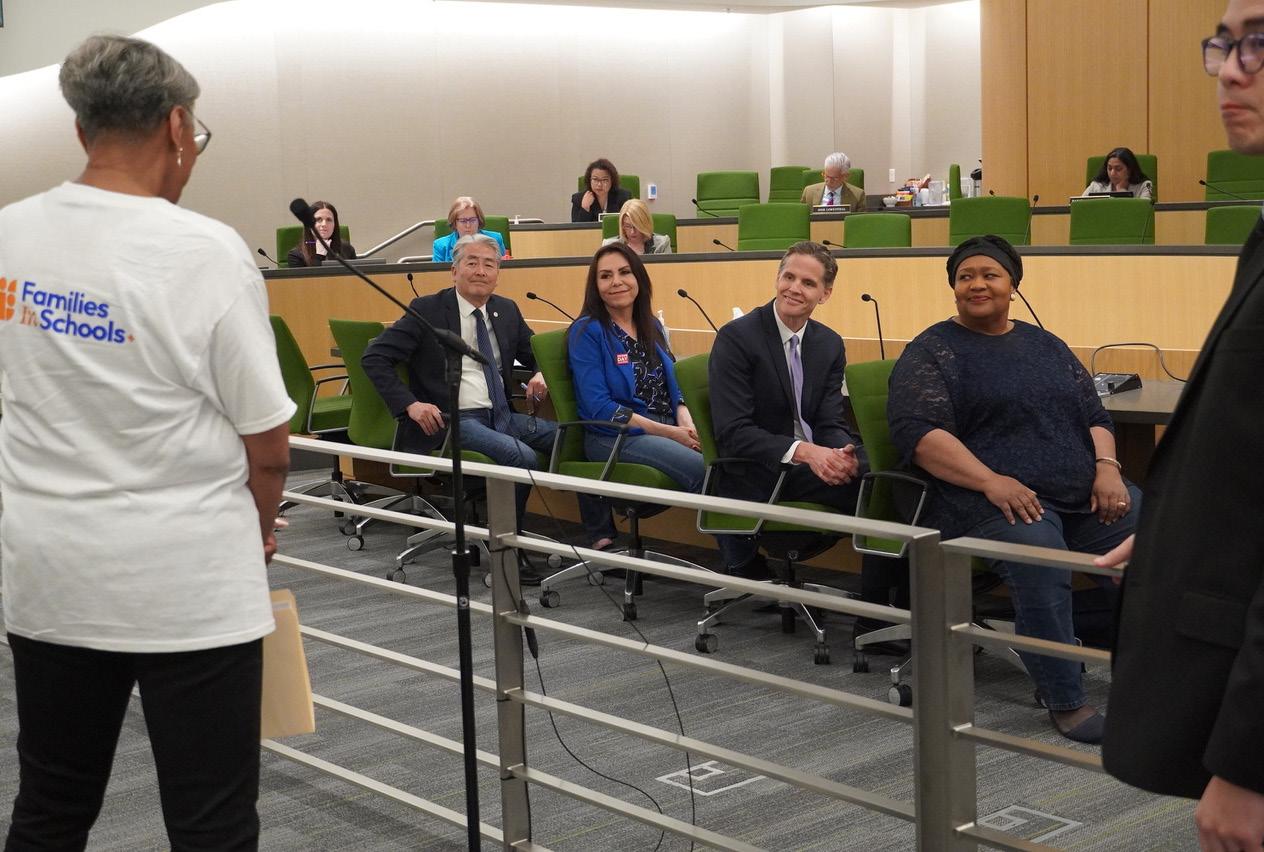

By Antonio Ray Harvey California Black Media
The Assembly Committee on Education passed previously stalled legislation after an agreement was struck to strengthen early childhood literacy efforts in the state by equipping educators with the necessary tools and training.
Assembly Bill (AB) 1454, authored by Speaker Robert Rivas (D-Hollister), Assemblymember Al Muratsuchi (D-Torrance), and Assemblymember Blanca Rubio (D-Baldwin Park), unanimously passed out of committee with a 9-0 vote.
The evidence-based reading instruction bill, supported by the National Association for the Advancement of Colored People (NAACP) CaliforniaHawaii State Conference, now moves on to the Committee on Appropriations for review.
“This legislation is essential, important progress, and it reflects agreement and robust consensus on ways to provide educators the evidence-based tools they need to support California’s diverse students,” Rivas said in an April 30 statement. “We must make sure every child, no matter their background, has the opportunity to become a confident and thriving reader.”
AB 1454 would require the California Department of Education to identify effective professional development programs for educators primarily focused on teaching reading in transitional kindergarten through fifth grade.
It also requires the State Board of Education to adopt updated English language arts and
English language development instructional materials. Additionally, the Commission on Teacher Credentialing would be required to update school administrator standards to include training on how to support effective literacy instruction.
The legislation was authored and introduced by Rubio as AB 2222 last year. She said was designed to implement evidencebased methods, also known as “the science of reading,” a scientifically-based research approach that advises how pupils are taught to read.
The bill stalled in April 2024 when the California Teachers Association (CTA) and other education stakeholders opposed the bill, questioning a mandate that would have required all school districts to standardize instruction and required training.
Rubio reintroduced the bill as AB 1121, but it too failed to advance, prompting Rivas to create AB 1454. After multiple rounds of negotiations, an agreement was made that reading instruction training would be discretionary.
Patricia Rucker, a legislative advocate for the CTA and former State School Board of Education member, said the agreement reached required each party involved to make concessions about implementation.
“Reasonable people can disagree on reasonable things, but we also can show the world how you can disagree and come together,” Rucker said during the hearing held at the State Capitol Swing Space. “We’re committed to continuing the work on this bill
Continued on page 7
By Antonio Ray Harvey California Black Media
On May 6, employees from industries across the private and public sectors — including utility, domestic, janitorial, healthcare, oil and gas, and farm workers — joined educators and others in Sacramento to push lawmakers to strengthen the state’s health and safety enforcement systems.
The rally at the State Capitol was organized by a statewide coalition of 15 worker unions called California Labor for Climate Jobs (CLCJ).
Organizers say their campaign
to pressure legislators and state officials to not abandon their responsibility to protect workers is urgent as climate hazards rise and federal government efforts to pull back on oversight and enforcement increase.
“Approximately 19 million workers in the state are here together to have a say in what happens next,” said Norman Rogers, vice president of United Steelworkers Local 675. “In seven of the last eight years, California has recorded record-high temperatures while workers from our state’s fields to
Continued on page 6
Gov. Newsom and Superintendent Thurmond Announce $618 Million for 458 Community Schools Statewide
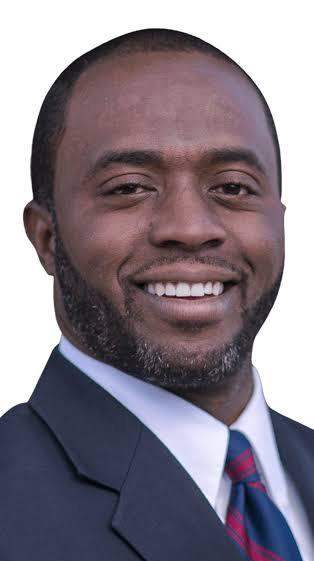
Crude oil, gasoline, diesel fuel, and other petroleum products can expose you to chemicals including toluene and benzene, which are known to the State of California to cause cancer and birth defects or other reproductive harm. These exposures can occur in and around oil fields, refineries, chemical plants, transport and storage operations, such as pipelines, marine terminals, tank trucks, and other facilities and equipment listed here:
https://www.wspa.org/proposition-65-notice-information/
The foregoing warning is provided pursuant to Proposition 65. This law requires the Governor of California to publish a list of chemicals “known to the State to cause cancer or reproductive toxicity.” This list is compiled in accordance with a procedure established by the Proposition, and can be obtained from the California Environmental Protection Agency. Proposition 65 requires that clear and reasonable warnings be given to persons exposed to the listed chemicals in certain situations. For more information go to www.P65Warnings.ca.gov/petroleum or call:

By Bo Tefu California Black Media
The California State Assembly has agreed to amend a controversial bill that would increase penalties for adults who solicit sex from minors ages 16 or 17, following a wave of criticism from Republicans and concerns raised by Gov. Gavin Newsom.
The revised version of Assembly Bill 379, authored by Assemblymember Maggy Krell (D-Sacramento), now allows prosecutors to file felony charges against adults who solicit sex from a 16 or 17-year-old, provided the accused is three or more years older than the minor. If the offender is within three years of the minor, the charge would remain a misdemeanor.
“From a prosecutor’s standpoint, this bill strengthens California law and gives us the felony hammer to prosecute the creeps that are preying on teenagers,” Krell said in a statement supporting the amended bill.
The new amendments also include provisions for a state grant program aimed at improving the prosecution of human trafficking and sex trafficking cases, as well as a support fund for survivors partially funded by increased fines on businesses that enable or fail to address human trafficking.
The bill faced significant opposition last week after the Assembly removed a provision that would have treated solicitation of 16 and 17-year-olds as a felony for all offenders.
By Bo Tefu
California Black Media
California Governor Gavin Newsom and State Superintendent of Public Instruction Tony Thurmond announced today the approval of over $618 million in funding to support 458 community schools. The funds were unanimously approved during the May meeting of the State Board of Education and are part of the state’s $4.1 billion California Community Schools Partnership Program (CCSPP), the largest of its kind in the nation.
The initiative aims to break down barriers to learning by providing essential services such as healthcare, mental health support, and family engagement alongside quality education. This round of funding marks the final phase of the CCSPP grants, which have already provided support for nearly 2,500 community schools statewide.
Governor Newsom emphasized the importance of these schools in providing comprehensive resources for families, stating, “California continues to find and support innovative ways to make schools a place where every family and student can succeed.”
Superintendent Thurmond highlighted the positive impact of these community schools, noting, “Our Community Schools continue to serve as exemplars of programs that activate resources across the whole school community to educate the whole child.”
The initiative is part of California’s broader effort to transform public schools, including
Continued on page 7

California Observes Third Annual Black Health Advocacy Week
By Bo Tefu California Black Media
California’s third annual Black Health Equity Advocacy Week (BHEAW), observed from May 5-9, reaffirmed the commitment of the state and advocates to address systemic health disparities affecting Black communities.
Assemblymember Akilah Weber (D-San Diego), who is a medical doctor and chair of the California Legislative Black Caucus (CLBC), authored the resolution that created BHEAW — the first statewide initiative of its kind focused on advancing Black health equity.
On May 4, 2023, the California Assembly unanimously passed ACR 53, enacting BHEAW every first week of May.
“The life expectancy at birth for Black Californians is 76.2 years of age, which is five years shorter than the state average and the lowest life expectancy of all racial and ethnic groups in California,” said Weber in a statement.
“This disparity is a stark reminder of the systemic and institutional factors that contribute to health inequities in communities of color,” she added.
The California Black Health Network (CBHN) led this year’s events, combining advocacy, training, and public engagement to amplify the urgency of closing health gaps for Black Califor-
nians.
The theme of this year’s observance was “We’ve Got the Power.”
“CBHN is calling on our community to step up, speak out, and get involved. Increasing the participation of Black Californians in policymaking — across the health industry and public sector — is one of the most powerful ways we can drive change and save lives,” reads a message from the organization promoting this year’s BHEAW.
“Policy change is within your power and this week we’re in Sacramento with our Health Equity Advocacy Training (HEAT) Program Cohort 3 to uplift issues impacting our community and advocate to help shape the policies and programs that will improve the health of current and future generations of Black Californians,” the message continued.
Focused on public awareness and information, this year’s BHEAW included a social media campaign, a rally and training program with vital information on medical conditions that have a disproportionate impact on Black Californians, including maternal mortality, mental health, diabetes, cancer and more. For more information on the resolution or to join the movement, visit CBHN’s official site, www.cablackhealthnetwork.org.


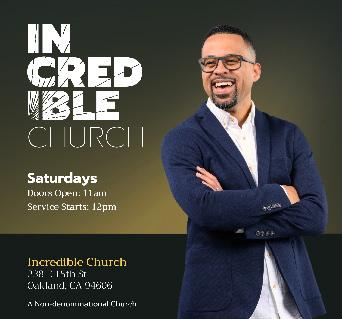
Adult Day Program
Dedicated staff needed to work with individuals with developmental disabilities in communitybased settings, or environments. Qualifications: High school or equivalent. Driver’s license. Dependable and efficient. Background check. Physical exam and TB test. Training available. Decent wages. Please call (510) 690-9570.
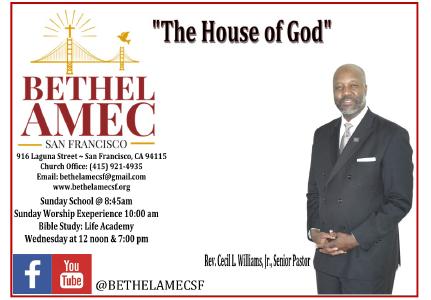
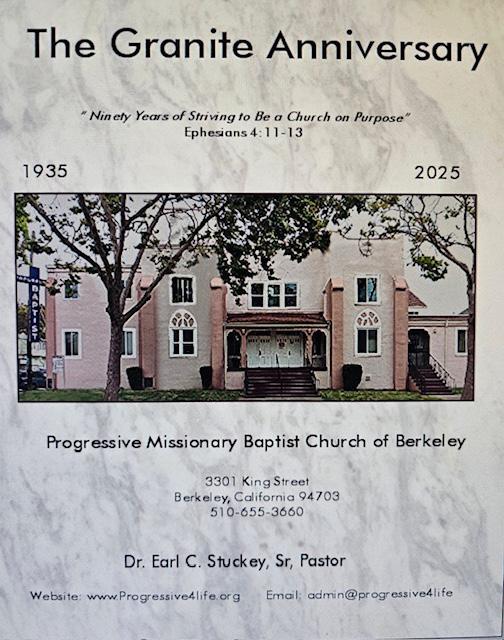
group of magazines got in line to run articles about Malcolm X’s life, finally sensing that White America “’needed his voice even more than Blacks did.’”
of norms.
erts is excerpted from the MacArthur Fellows web site.
But though Malcolm X was gone, he continued to leave an impact.
A graduate of Yale University with a law degree from Harvard, Dorothy Roberts is a legal scholar and public policy researcher exposing racial inequities embedded within health and social service systems.
He didn’t live long enough to see the official founding of the Black Panther Party, but he was influential on its beginning. He never knew of the first Kwanzaa, or the triumphs of a convert named Muhammad Ali.
Sine 2012, she has been a professor of Law and Sociology, and on the faculty in the department of Africana Studies at the University of Pennsylvania.
Malcolm left his mark on music. He influenced at least three major athletes.
By Bo Tefu California Black Media
Body: Race, Reproduction, and the Meaning of Liberty 1997)”, she analyzes historical and contemporary policies and practices that denied agency to Black women and sought to control their childbearing—from forced procreation during slavery, to coercive sterilization and welfare reform—and advocates for an expanded understanding of reproductive freedom.
state intervention and the results of those interventions.
Last week, Gov. Gavin Newsom, along with the nonprofit organization Visit California, announced that tourism spending in California reached a record $157.3 billion in 2024, reinforcing the state’s status as the top travel destination in the United States.
min, Jericho Brown, Tony Cokes,
olds, and Dorothy Roberts. This is the eighth and last in the series highlighting the Black awardees. The report below on Dorothy Rob-
grants’ are scholars, visual and media artists a poet/writer, historian, and dancer/choreographer who each receive $800,000 over a five-year period to spend as they
By Terri Schlichenmeyer
Author: by Mark
Whitak-
er, c.2025, Simon & Schuster, $30.99, 448 pages
Who will remember you in fifty years’ time?
A handful of friends – at least those who are still around – might recall you. Your offspring, grandkids, and greats, maybe people who stumble upon your tombstone. Think about it: who will remember you in 2075? And then read “The Afterlife of Malcolm X” by Mark Whitaker and learn about a legacy that still resonates a half-century later.
Betty Shabazz didn’t like to go to her husband’s speeches, but on that February night in 1965, he asked her to come with their daughters to the Audubon Ballroom in New York. Did Malcolm
X sense that something bad would happen on that night? Surely. He was fully aware of the possibility, knowing that he’d been “a marked man” for months because of his very public break with the Nation of Islam.
As the news of his murder spread around New York and around the world, his followers and admirers reacted in many ways. His friend, journalist Peter Goldman, was “hardly shocked” because he also knew that Malcolm’s life was in danger, but the arrest of three men accused of the crime didn’t add up. It ultimately became Goldman’s “obsession.”
Malcolm’s co-writer for The Autobiography of Malcolm X, Alex Haley, quietly finished the book he started with Malcolm, and a small upstart publishing house snatched it up. A diverse
He was a “touchstone” for a president …
Roberts’s work encompasses reproductive health, bioethics, and child welfare. She sheds light on systemic inequities, amplifies the voices of those directly affected, and boldly calls for wholesale transformation of existing systems.
Roberts’s early work focused on Black women’s reproductive rights and their fight for reproductive justice. In “Killing the Black
While it’s true that “The Afterlife of Malcolm X” is an eyeopening book, one that works as a great companion to the autobiography, it’s also a fact that it’s somewhat scattered. Is it a look at Malcolm’s life, his legacy, or is it a “murder mystery”?
Turns out, it’s all three, but the storylines are not smooth. There are twists and tangents and that may take some getting used-to. Just when you’re immersed, even absorbed in this book, to the point where you forget about your surroundings, author Mark Whitaker abruptly moves to a different part of the story. It may be jarring.
And yet, it’s a big part of this book, and it’s essential for readers to know the investigation’s outcome and what we know today. It doesn’t change Malcolm X’s legacy, but it adds another frame around it.
If you’ve read the autobiography, if you haven’t thought about Malcolm X in a while, or if you think you know all there is to know, then you owe it to yourself to find “The Afterlife of Malcolm X.”
For you, this is a book you won’t easily forget.
This work prompted Roberts to examine the treatment of children of color in the U.S. child welfare system.
The Governor made the announcement May 5, referencing Visit California’s 2024 Economic Impact Report, which highlights a 3% increase in tourism revenue over the previous year.
According to the report, California’s tourism sector supported 1.2 million jobs, generated $12.6 billion in state and local tax revenues, and created 24,000 new jobs in 2024.
“California dominates as a premier destination for travelers throughout the nation and around the globe,” said Newsom. “With diverse landscapes, top-rate attractions, and welcoming communities, California welcomes millions
After nearly two decades of research and advocacy work alongside parents, social workers, family defense lawyers, and organizations, Roberts has concluded that the current child welfare system is in fact a system of family policing with alarmingly unequal practices and outcomes. Her 2001 book, “Shattered Bonds: The Color of Child Welfare,” details the outsized role that race and class play in determining who is subject to

their families after CPS referral.
iStock.
In “Torn Apart: How the Child Welfare System Destroys Black Families—and How Abolition
Can Build a Safer World (2022),”
Roberts traces the historical, cultural, and political forces driving the racial and class imbalance in child welfare interventions.
of visitors every year. We also recognize that our state’s progress is threatened by the economic impacts of this federal administration, and are committed to working to protect jobs and ensure all Californians benefit from a thriving tourism industry.”
She also shows that blaming tural problems, while ignoring the historical roots of economic and social inequality, fails families and grained oppressive features of the tirely new approach focused on supporting families rather than Her support for dismantling the current system of child welfare is unsettling to some, but her cation inspires many to think more critically about its poor track record and harmful design.
downturn is attributed to federal economic policy and what officials are calling an impending “Trump Slump,” caused by waning global interest in traveling to the United States.
Despite the gains in tourism revenue, Visit California’s revised 2025 forecast points to a 1% decline in total visitation and a 9.2% decrease in international travel. The
These include stereotypes about Black parents as negligent, devaluation of Black family bonds, and stigmatization of parenting practices that fall outside a narrow set
To offset projected losses, the Governor is encouraging Californians to continue traveling within the state and has launched a new campaign aimed at Canadian travelers.
By uncovering the complex forces underlying social systems and institutions, and uplifting the experiences of people caught up in them, Roberts creates opportunities to imagine and build more equitable and responsive ways to ensure child and family safety.




... Continued from page 2
our commercial kitchens, from our warehouses to our schools continue to work in dangerously highheat conditions.”
Cal/OSHA provides protection and improves the health and safety of working men and women in the state. The agency also enforces public safety measures to pro-
tect passengers riding on elevators, amusement rides, tramways, and more.
According to a 2023 report by the American Federation of Labor and Congress of Industrial Organizations (AFL-CIO), workplace hazards are responsible for killing approximately 140,000 workers each year, including 5,283 from traumatic injuries.
Hazardous working conditions have caused an estimated 135,000 deaths from occupational diseases. That’s about 385 workers dying
each day, according to the report.
Assemblymember Tina McKinnor (D-Inglewood) spoke at the rally to discuss legislation she authored, Assembly Bill (AB) 694, which proposes a pathway to jobs for Cal/OSHA to ensure stronger public safety enforcement.
According to CLCJ, Cal/OSHA is experiencing an understaffing crisis that is evident in the agency’s 43% vacancy rate.
McKinnor, a member of the California Legislative Black Caucus (CLBC), said the bill aims to
fully staff the state agency with enforcement agents who have expertise in working in California’s most dangerous work environments.
The Assembly Committee on Higher Education voted 9-0 to advance AB 694 on April 29. It is now headed to the Committee on Appropriations for consideration.
“Extreme heat is on the rise, with year-over-year, record-breaking temperatures that threaten the health and safety of California workers, from warehouse workers
who lack adequate cooling, to janitors cleaning buildings after the air conditioning has been turned off, to line chefs cooking in unventilated kitchens,” McKinnor said at the rally.
McKinnor continued, “We must urgently shore up our health and safety systems, so we can enforce California heat standards and safeguard worker health.”
CLCJ released the California Worker Climate Bill of Rights last fall, urging state legislators to propose policy solutions to pro-
tect workers from climate hazards such as extreme heat, fires, smoke, and floods.
Norman Rogers, Second Vice President of United Steelworkers Local 675 in Carson, said oil refinery operations around the state pose “the most hazards.”
“AB 694 seeks to recreate Cal/ OSHA to hire union oil and gas workers leveraging the knowledge, health and safety training, and process safety training used daily to ensure safe, compliant refinery operations,” Rogers added.
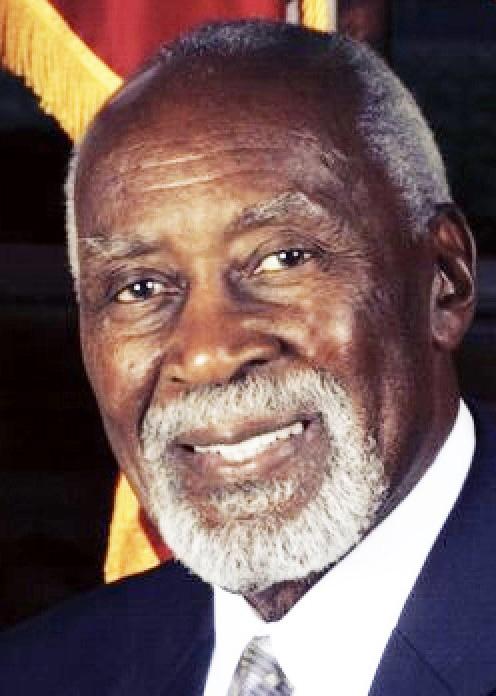
widely regarded as a forceful advocate for his community.
Los Angeles County Supervisor Janice Hahn described Holden as “a lion” in the State Senate and a force to be reckoned with on the Los Angeles City Council.”
Hahn added that she learned a lot working with Holden when she was a new councilmember.
Holden’s journey to political prominence began in the segregated South, where he was born in Macon, Georgia, in 1929. He often recalled the childhood moment when he first heard the governor of Georgia vowing to continue suppressing Black people.

By Bo Tefu
Black Media
California
By Bo Tefu
California Black Media
Former Los Angeles City
Councilmember Nathaniel
“Nate” Holden, a prominent figure in the city’s politics, passed away at the age of 95, his family confirmed on May 7.
Holden, who represented South Los Angeles for 16 years on the City Council and served one term in the California State Senate, was
“Doing the best you can for the people. Law and order. Make sure that people’s communities are safe. I did it all,” said Holden reflecting on his legacy.
Holden is survived by his sons, including former California Assemblymember Chris Holden, who represented a district in Southern California that includes Pasadena and Altadena in Los Angeles County and cities in San Bernardino County.
Gov. Gavin Newsom and First Partner Jennifer Siebel Newsom on May 8 issued a statement congratulating Pope Leo XIV on his historic election as the first American to lead the Catholic Church.
minded us that God loves each and every person,” said Newsom. “We trust that he will shepherd us through the best of the Church’s teachings: to respect human dignity, care for the poor, and wish for the common good of us all.”
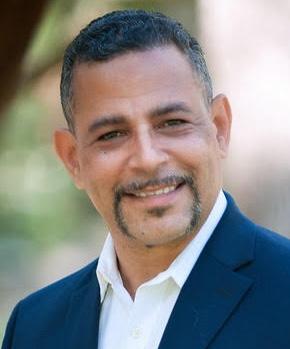
By Craig J. DeLuz
Special to California Black Media Partners
contentious battlefield.
In this debate, it is essential to recognize that parents are, first and foremost, their children’s primary educators. When they send their children to school — public or private — they do not surrender their rights or responsibilities.
Yet, the education establishment has been increasingly encroaching on this vital paradigm.
our Speaker, for finally sitting us down and saying, ‘Get it done. Get it done.’”
The announcement has drawn widespread reaction from U.S. leaders, including former House Speaker Nancy Pelosi, who called the moment spiritually significant and aligned with the values of service and social justice.
CTA ...
Continued from page 2
to keep the bill moving forward.”
Rubio said she was close to surrendering the fight for the bill, stating that the process “by far, has been the hardest thing that I have ever done in nine years as a legislator.”
“Sometimes I was ready to walk away,” she said, “but for the coalition (of supporters), parents, family members, and of course,
Marshall Tuck, the CEO of EdVoice, told California Black Media that one-third of states have integrated evidence-based reading instruction into their early literacy policies and have done so with measurable success.
“Reading is a civil rights issue, and it demands urgent action,” Tuck said. “There are a lot of challenges that go into reading, but this is a big step forward.”
In their statement, the Newsoms expressed hope that the newly elected pope would guide the Church with a focus on compassion, dignity, and care for the most vulnerable.
Newsom said he and the First Partner joined others around the world in celebrating the milestone and were encouraged by the pope’s first message.
“In his first address, he re-
Newsom also expressed hope that the pontiff’s leadership would serve as a unifying force in a time of global instability.
“May he remind us that our better angels are not far away — they’re always within us, waiting to be heard,” he said.
Pelosi, a devout Catholic, also welcomed the pope’s election and noted his symbolic connection to earlier church leaders who championed workers’ rights and social equality.
“It is heartening that His Holiness continued the blessing that Pope Francis gave on Easter Sunday: ‘God loves everyone. Evil will not prevail,’” said Pelosi.
In America’s schools, the tension between parental rights and learning curricula has created a
$618 Million for 458 Community Schools Statewide ... Continued from page 2
expanding access to free school meals, universal transitional kindergarten, and comprehensive teacher support. The funds awarded on May 7 will help schools address foundational needs such as early childhood education, mental health services, and family engagement.
The CCSPP was established in
A case recently argued before the Supreme Court regarding Maryland parents’ rights to opt out of lessons that infringe upon their religious beliefs epitomizes this growing conflict. This case, Mahmoud v. Taylor, is not simply about retreating from progres-
Continued on page 8
2021 and expanded in 2022. With today’s allocation, the program has provided funding to a total of 2,500 schools, benefiting some of the most underserved communities in the state. The initiative continues to prioritize the health and well-being of students, which research has shown is key to academic success.
To get more information about the California Community Schools Partnership Program, visit the CDE’s community schools’ webpage: www.cde.ca.gov/ci/gs/ hs/ccspp.asp.
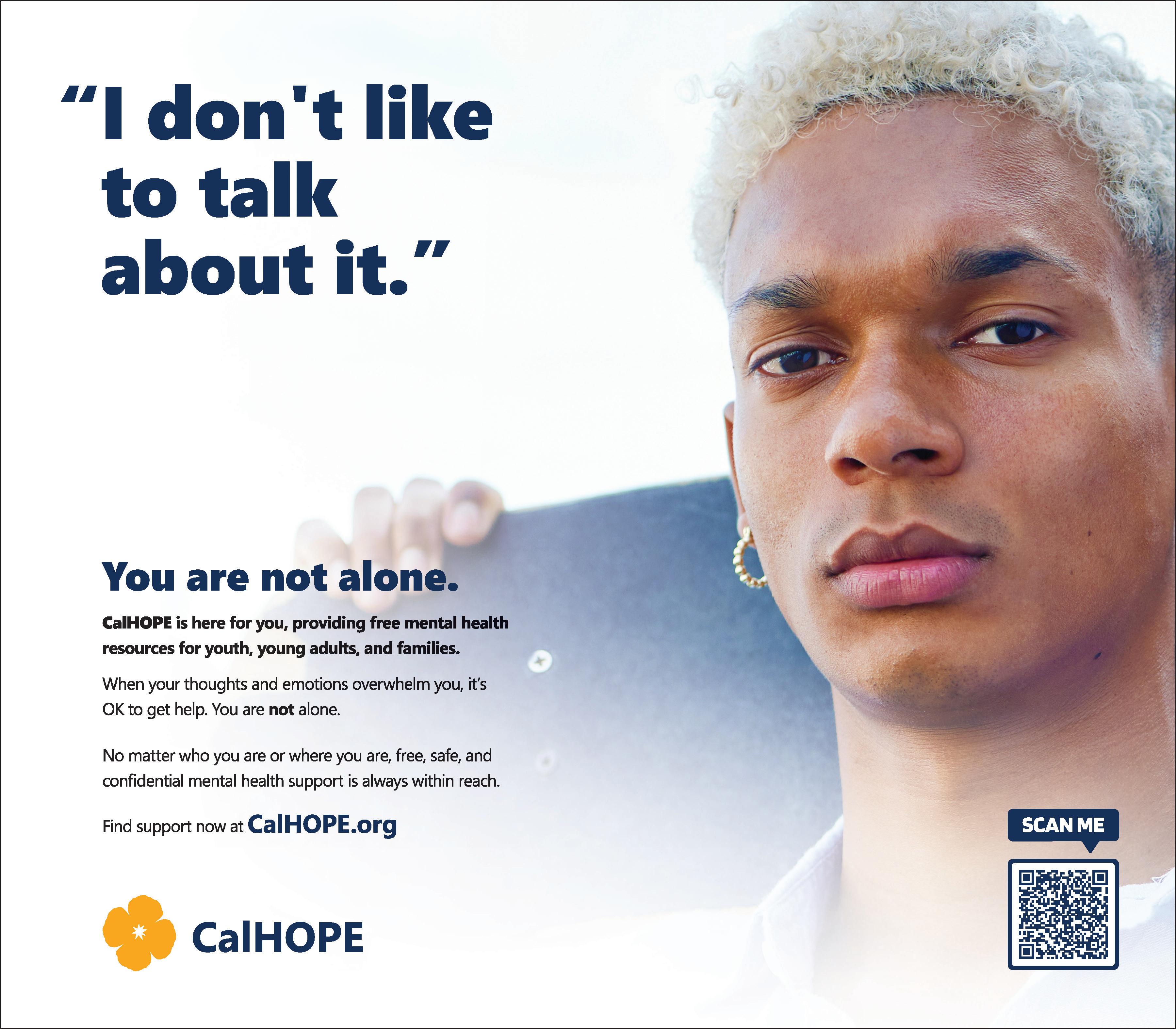

By Tamara Shiloh
The debate over whether en-
slaved African Americans could receive U.S. Government-issued patents was still unfolding when the second African American to hold a patent, Henry Blair received his first patent in 1834. The first African American to receive a patent was Thomas Jennings in 1821 for his discovery of a process called dry scouring, also known as dry cleaning.
Blair was born in Glen Ross, Maryland, in 1807. He was an African American farmer who received two patents. Each patent was designed to help increase agricultural productivity.
There is very little information about his life prior to the inventions. It is known that he was a farmer who invented machines to help with planting and harvesting crops. There is no written evidence that he was a slave.
However, it is apparent that he was a businessman.
Being a successful farmer required consistent products. Blair figured out a way to increase his harvest. He did this with two inventions. His first invention was a corn planter. The planter had the same structure as a wheelbarrow, with a box to hold the seed and rakes dragging behind to cover them. This machine allowed farmers to plant their crops more economically.
Blair could not write. As a result of his illiteracy, he signed the patent with an “X”. He received his first patent for the corn planter on Oct. 14, 1834.
Two years later, taking advantage of the boost in the cotton industry, he received his second patent. This time for a cotton planter. This machine worked by splitting the ground with two shovel-like blades that were pulled along by a horse. A wheel-driven cylinder behind the blades placed seeds into the freshly plowed ground. Not only was this another eco-
nomical and efficient machine. It also helped with controlling weeds and put the seeds in the ground quickly Henry Blair received his second patent on Aug. 31, 1836
During this time, the United States government passed a law that allowed patents to be granted to both free and enslaved men. However, in 1857, this law was contested by a slaveowner. He argued that slaveowners had a right to claim credit for a slave’s inventions. His argument was that since an owner’s slaves were his property, anything that a slave owned was the property of the owner also.
In 1858 the law changed, and patents were no longer given to slaves. However, the law changed again in 1871 after the Civil War. The patent law was revised to permit all American men, regardless of race, the right to patent their inventions.
Blair died in 1860.
Continued from page 2
sive educational mandates. It is fundamentally a defense of First Amendment rights, a defense of parents’ rights to be parents.
At the center of this controversy are some parents from Montgomery County in Maryland, who assert a fundamental principle: the right to shield their children from exposure to sexual content that is inappropriate for their age, while also steering their moral and ethical upbringing in alignment with their faith. The local school board decided to introduce a curriculum that includes LGBTQ+ themes — often embracing controversial discussions of human sexuality and gender identity. The parents argue that the subject matter is age inappropriate, and the school board does not give parents the option to withdraw their children when those lessons are taught.
This case raises profound questions about the role of public education in a democratic society. In their fervent quest for inclusivity, some educators seem to have overlooked an essential truth: that the promotion of inclusivity should never infringe upon parental rights and the deeply held convictions that guide families of different faith backgrounds.
This matter goes well beyond mere exposure. It veers into indoctrination when children are repeatedly confronted with concepts that clash with their family values.
“I don’t think anybody can read that and say: well, this is just
telling children that there are occasions when men marry other men,” noted Justice Samuel Alito. “It has a clear moral message, and it may be a good message. It’s just a message that a lot of religious people disagree with.”
Justice Amy Coney Barrett raised a crucial point, noting that it is one thing to merely expose students to diverse ideas; it is quite another to present certain viewpoints as indisputable truths. By framing an ideology with the certainty of “this is the right view of the world,” educators risk indoctrination rather than enlightenment. This distinction is not merely academic; it speaks to the very essence of cultivating a truly informed citizenry.
Even Justice Elena Kagan expressed concern regarding the exposure of young children to certain materials in Montgomery County.
“I, too, was struck by these young kids’ picture books and, on matters concerning sexuality, I suspect there are a lot of non-religious parents who weren’t all that thrilled about this,” she said.
Justice John Roberts aptly questioned the practicality of expecting young children to compartmentalize their beliefs in the classroom.
“It is unreasonable to expect five-year-olds, still forming their worldviews, to reconcile lessons that conflict fundamentally with the teachings they receive at home,” he said.
As was noted in my previous commentary, “The Hidden Truth In The Battle Over Books In American Schools”, what lies at the heart of these debates is a moral disconnect between the





values held by the majority of Americans and those promoted by the educational establishment. While the majority rightly argue that material containing controversial content of a sexual nature should have no place in our children’s classrooms, the education establishment continues to tout the necessity of exposing children to such content under the guise of inclusivity. This disregards the legitimate values held by the wider community.
Highlighted in this case that is before the Supreme Court is a crucial truth: parents must resolutely maintain their right to direct their children’s education, according to their values. This struggle is not simply a skirmish; it reflects a broader movement aimed at reshaping education by privileging a state-sanctioned narrative while marginalizing dissenting voices. It is imperative that we assert, without hesitation, that parents are — and must remain — the primary educators of their children.
When parents enroll a child in a school, it should in no way be interpreted as a relinquishment of parental authority or the moral guidance essential to their upbringing. We must stand firm in defending parental rights against the encroaching ideologies of the education establishment.
About the Author
Craig J. DeLuz has almost 30 years of experience in public policy and advocacy. He has served as a member of The Robla School District Board of Trustees for over 20 years. He also currently hosts a daily news and commentary show called “The RUNDOWN.” You can follow him on X at @CraigDeLuz.












Continued from page 1
supporting and uplifting Oakland’s beautiful small business community.
A Community Advisory Committee serves as a group of thought and action partners to EBCF in the design and implementation of the
Oakland Small Business Resiliency Fund, including co-design of application, marketing, and evaluation materials and advising on funding decisions.
For more information, please go to SmallBusinessResiliencyFund@eastbaycf.org.
Continued from page 1
physician, Dr. Stephen Sarafian, wrote a letter and testified that Dr. Head lacked mental capacity, and her mental state rendered her unable to manage her own financial resources and/or to resist fraud or undue influence.
His letter had the wrong day, month, year and identified Dr. Head as a male. Jendayi filed a complaint against Sarafian with Kaiser’s grievance department and the medical board of California. Both agencies denounced Sarafian’s false letter.
When Jendayi subpoenaed Sarafian to testify a second time, Sarafian testified he had not performed a mental assessment on Dr. Head, had not diagnosed Dr. Head’s lack mental capacity, and had not determined if she could manage her own financial resources and/or resist fraud or undue influence,
During the 18-day trial, the sisters’ attorney, Daniel Leahy, stated that Jendayi named herself Head’s beneficiary. No one testified to that claim, nor was there any evidence. When Jendayi objected during the trial, Judge Sandra Bean stated, “it’s only
argument.”
However, Bean accepted the “only argument” lie from Leahy, a court attorney who never met Dr. Head, over Dr. Head’s attorney, Elaine Lee, who testified that Dr. Head named Jendayi as her beneficiary after she met with Dr. Head privately. Bean ruled that Jendayi named herself beneficiary and unduly influenced Dr. Head.
Zendayi says “Trial transcripts show Bean’s extreme bias and discrimination against me, how Bean lawyered from the bench, abused her discretion, changed a witness testimony on the record and exhibited blatant racism.”
The Appellate Court upheld Bean’s ruling, They also ruled that Jendayi named herself beneficiary and relied on Sarafian’s invalid letter three times to uphold Bean’s ruling.
Jendayi then petitioned to the Supreme Court of California for justice, but the Court denied hearing her case. Jendayi is now headed to the Supreme Court of the United States seeking justice. Judge Bean has been contacted for comment, but thus far there has been no response.
Continued from page 1
About the Golden State Valkyries
The Golden State Valkyries, the WNBA affiliate of the seventime NBA Champion Golden State Warriors, were announced as the 13th WNBA franchise on Oct. 5, 2023. According to Norse mythology, Valkyries are a host of warrior women who are fearless and unwavering – flying through air and sea alike.
This brand is Golden State’s modern interpretation of Valkyries: strong, bold, and fierce. Tipping off during the 2025 WNBA season, the team is headquartered in Oakland and will play home games at Chase Center in San Francisco. For Golden State Valkyries’ assets, including team logos, visit valkyries.com.
Continued from page 1
rescue it.
But the truth behind the takeover is far different. It’s a story of raw power, greed, and racism.
When the state declared the district insolvent in 2003, OUSD had a $39 million deficit, and funds in a reserve account sufficient to loan itself funds to cover the deficit, a practice that was common in other districts. However, the state would not allow Oakland to use its own money to cover the shortfall.
The state stepped in, fired Supt. Dennis Chaconas, eliminated the authority of the Board of Education, forced the district to take a $100 million loan that it neither needed nor requested, and appointed a receiver, Randolph Ward, who reported to the state schools’ superintendent, making all the decisions related to the operation of OUSD, including how to spend the $100 million loan.
Not only did the district have to repay the loan, it had to pay the salaries of the various overseers it was required to hire.
Involved in the drive to take control of the district and sell school properties was Oakland’s then powerful State Senator Don Perata, who had been pushing for several years to take control of the district, unsuccessfully attempting to sell the district’s Second Avenue headquarters to real estate developers.
Other local business and political leaders, including State Supt. of Schools Bill Honig, were determined to eliminate the power of the Black majority school board, which was seen as an impediment to the agenda for business as usual.
Among recent interventions by Oakland’s outside overseers
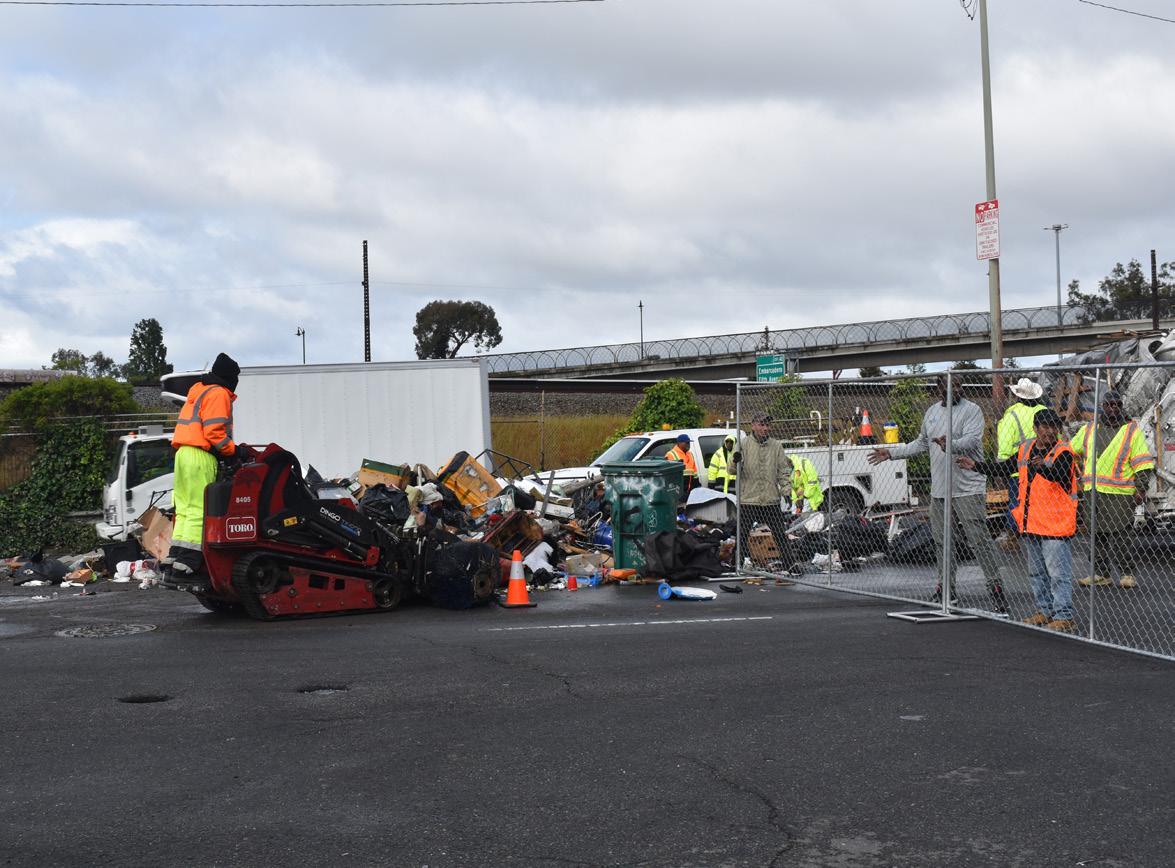
By Magaly Muñoz
The City of Oakland began a three-week-long breakdown of the largest homeless encampment in the city on E. 12th Street on Monday morning. Residents and advocates said they are devastated about the displacement of dozens of people.
At 8 a.m. sharp, city workers began piling up trash and dismantling makeshift homes along the nearly five-block encampment. City crews blocked off streets from 14th Avenue to 17th Avenue, between E. 12th and International Boulevard, due to the Safe Work Zone Ordinance that was passed by the City Council in 2022 to protect workers from harassment during cleanings, according to a city spokesperson.
Jaz Colibri, one of the many advocates at the closure, said the encampment sweeps were “intense and terrifying” to witness. They claimed that several residents, many of them non-English speakers, had not been aware that the sweep was happening that day because of a lack of proper communication and outreach from Oakland.
was an effort in 2021, when the district, with broad community support, was about to adopt a resolution for “Reparations for Black Students.” The outside trustee spoke at a school board meeting to block the passage of the measure until the board removed wording that would have protected predominantly Black schools from being closed.
In 2024, during district negotiations with administrators, the trustee did not allow the board to approve more money unless it agreed to guidelines to close and merge schools.
In a letter to the district, Alameda County Superintendent of Schools Alysse Castro agreed that the district has done what is necessary to regain local control but that challenges remain.
“These improvements co-exist with ongoing concerns that OUSD must still confront its structural deficit and address the long-standing overinvestment in small schools,” she wrote.
“However, these are challenges of local policy and the domain of a locally elected board of education, not of mismanagement or financial misconduct,” Castro wrote.
“Continuing to require a trustee to backstop them risks continued delay in local ownership and accountability and reinforces a counterproductive narrative that feeds resistance and undermines the board’s willingness to engage their community in making necessary tradeoffs.”
Going forward, the district still faces financial difficulties.
According to reports, the board must make $73 million in cuts to the 2025-2026 budget and an additional $17 million from the 2026-2027 budget.
Colibri added that the city had done a Census “many months ago” and “had not bothered to count people since then,” meaning dozens of individuals have missed out on housing and resources in the last few weeks because the city doesn’t offer outreach in multiple languages.
“Basically, [Oakland] dropped the ball on actually getting to know everybody who lives here and then creating a housing solution that meets everyone’s needs,” Colibri said.
City spokesperson Jean Walsh told the Post that notices of the closure operation were posted in Spanish and Chinese prior to Monday, but did not clarify if outreach was done in those languages as well.
Nearly a dozen Oakland police vehicles, California Highway Patrol officers, and Oakland Public Works staff were gathered along E. 12th waiting for residents to pack up their belongings and move away from the area.
Advocates said residents “felt
unsafe” due to the hefty law enforcement presence.
One city worker, who was picking up debris near 16th Avenue, said, “They’ve known we were coming for a long time now” in reference to resident confusion about the sweeping.
The state doubled down on its requirement to get cities and counties to deal with their homelessness crisis at a press conference Monday afternoon. Gov. Gavin Newsom’s office released a “model ordinance” that is intended to provide a starting point that local municipalities can use to build from and adjust in creating their own policies on encampments, if they haven’t done so yet.
Newsom said “No more excuses, time to deliver” after the state has poured hundreds of millions of dollars into solving the issue.
Oakland was awarded a $7.2 million grant from the state in 2024 to close long-standing encampments in the city, including camps at Martin Luther King, Jr. and 23rd Street, and Mosswood Park.
Residents at these encampments were offered wraparound supportive services, temporary shelter, and eventually will be transitioned to permanent supportive housing, according to a city statement from last year.
Residents who accepted housing at these three encampments were moved into newly acquired property, formerly the Extended Stay America Hotel in West Oakland, which will first serve as interim housing for up to 150 individuals and couples in 105 units, and in the coming year, will be converted into 125 units of permanent housing.
Walsh said as of May 2, “32 residents of the recently closed Mosswood Park encampment moved into the Mandela House program” and as of May 12, “41 residents of the East 12th Street encampment have already accepted offers to move to the Mandela House.” The city will provide final numbers of how many accepted and moved into housing after the closure operation is over.
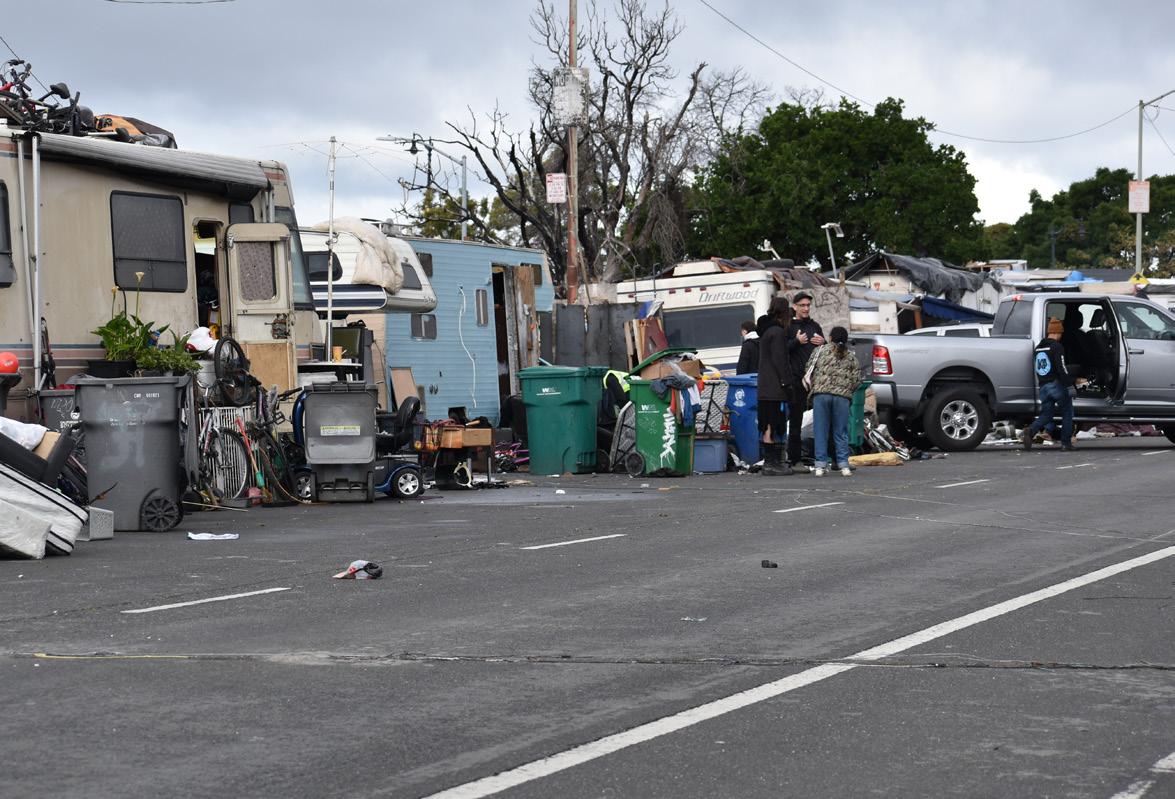
Oakland Hosts Town Hall ...
Continued from page 1
were built prior to 1978, and 12,000 of these homes are considered to be at high risk for lead poisoning.
City Councilmember Noel Gallo, who represents a few of the lead-affected Census tracts, said the majority of the poisoned kids and families are coming directly from neighborhoods like the Fruitvale.
“When you look at the [kids being admitted] at the children’s hospital, they’re coming from this community,” Gallo said at the town hall.
In order to eventually rid the highest impacted homes of lead poisoning, the city intends to create programs and activities such as lead-based paint inspections and assessments, full abatement designed to permanently eliminate lead-based paint, or partial abatement for repairs, painting,
and specialized cleaning meant for temporary reduction of hazards.
In feedback for what the city could implement in their programming, residents in attendance of the event said they want more accessibility to resources, like blood testing, and information from officials about lead poisoning symptoms, hotlines for assistance, and updates on the reduction of lead in their communities.
Attendees also asked how they’ll know where they are on the prioritization list and what will be done to address lead in the water found at several school sites in Oakland last year.
City staff said there will be a follow-up event to gather more community input for programming in August, with finalizations happening in the fall and a pilot launch in early 2026.
Mexico, Japan Face Off in Historic Soccer Match at Oakland Coliseum on Sept. 6

Oakland City Councilmember Rebecca Kaplan, who led the council advocacy and selection of the African American Sports and Entertainment Group (AASEG) to purchase The Oakland Coliseum, announced that the Mexico National Soccer team will face-off against Japan.
“This amazing success bring-
ing this huge game to Oakland is a further step in our work over the past couple years to increase bookings and events at the Oakland Arena and Coliseum,” Kaplan said. “These events bring jobs, revenues to fund vital public services, and bring energy and excitement to the community.” Oakland Roots and Soul Season Ticket Members will receive priority access to purchase tickets for the Mexico vs. Japan match. Tickets will go on sale to the general public on May 19.
City, School District Programs to Offer Free
By Kiley Russell Bay City News
Oakland kids will be able to eat for free this summer thanks to programs run by the city and the Oakland Unified School District.
City officials said Monday they’ll be rolling out their annual Summer Food Service Program, a 40-plus-year-old effort that last year served nearly 1,800 lunches and snacks per day.
This year, after teetering on the brink of closure due to budget cuts, the program will operate from May 27 to Aug. 8.
The Summer Food Service Program was saved by a publicprivate partnership involving the city, the East Bay Community Foundation, Stephen and Ayesha Curry’s Eat. Learn. Play. Foundation, and the Alameda County Community Food Bank.
“Our team worked hard to find a creative solution to continue providing nutritious meals to our community’s children throughout the summer, despite severe fiscal challenges,” LaTonda Simmons, Oakland’s assistant city administrator, said in a news release.
Simmons credited City Administrator Jestin Johnson with spearheading the effort to find partners outside of the city to keep the program alive.
This year, at least 47 sites will offer meals, including 26 city-run sites, as well as facilities operated by faith-based and community organizations.
Most sites will be open to all children aged 18 and younger and to adults with disabilities enrolled in a school program, but a few will offer meals only to children who are enrolled in a summer program.
The city’s share of the cost for the program is about $427,000, while the three other organizations will contribute $375,000, according to city officials.
The city’s portion will be reimbursed by the U.S. Department of Agriculture, according to city officials.
Together, the city and its partners plan to distribute up to 2,150 meals per day and people won’t be required to provide identification or proof of income to access meals.
More information about the city’s program can be found at www.oaklandca.gov/topics/summer-food-service-program.
In addition to the city’s plans for summer meals, OUSD will be serving free meals at 40 summer school sites this year. All OUSD students are eligible to get food from these sites, according to OUSD spokesperson John Sasaki. OUSD parents and students can check in with their school sites to find a summer school program near them that is distributing meals.
People can also use the CA Meals for Kids mobile app to find times and locations for summer food distributions.